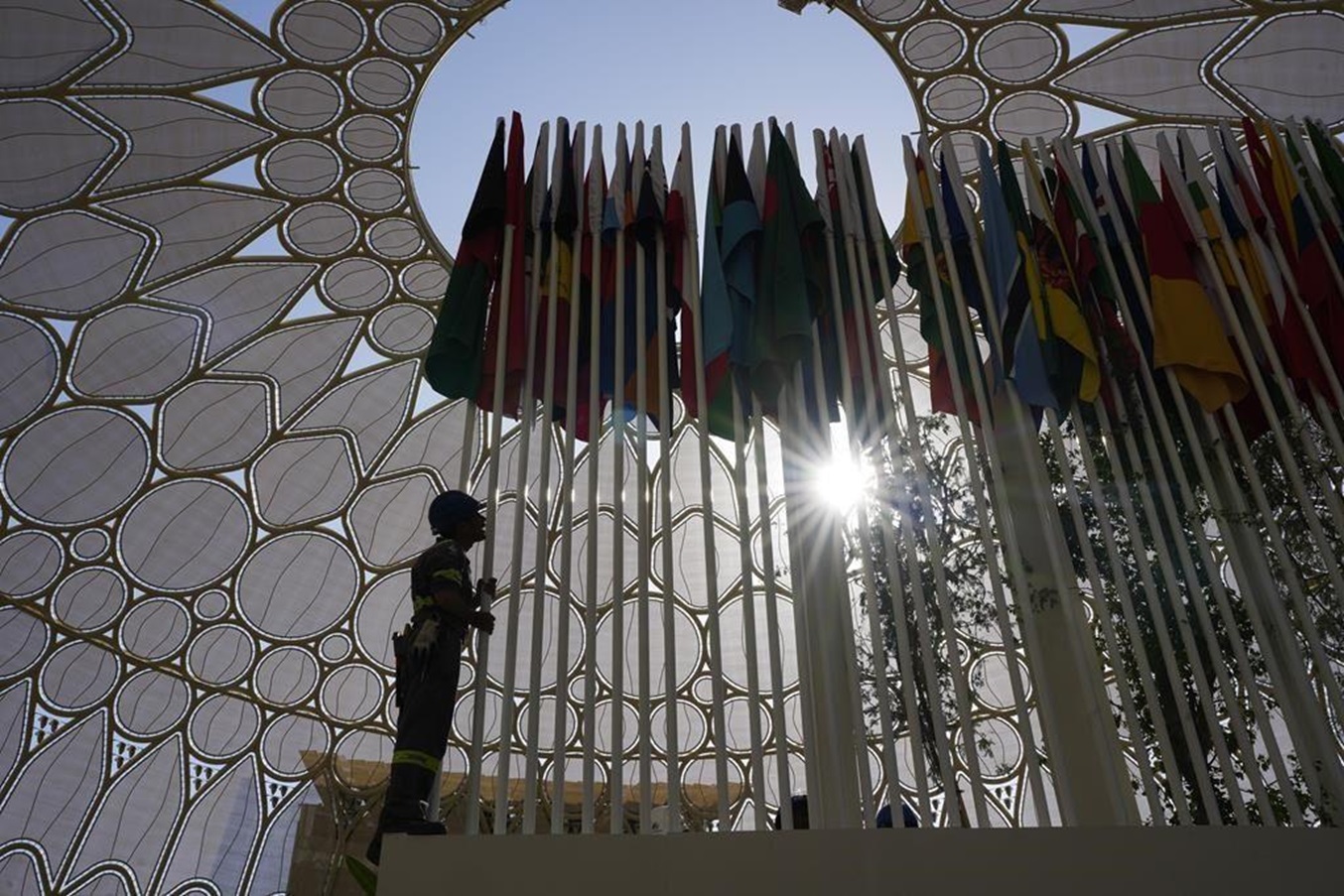
Canadian docs aim to make waves at the inaugural health day during the U.N. climate summit, urging for a fresh federal initiative on health and climate change. Flags get a tweak at COP28 in Dubai, Nov. 30, 2023. THE CANADIAN PRESS/AP-Rafiq Maqbool
In anticipation of the UN climate summit's first-ever dedicated health day, Canadian doctors are seizing the opportunity to advocate for a new federal office aimed at addressing the health impacts of climate change. Driven by a summer marked by record-breaking heat and pervasive wildfires emitting air pollutants, the Canadian Medical Association's president, Dr. Kathleen Ross, is proposing the establishment of a national "climate and health secretariat." This office would collaborate across governmental levels to develop a strategy for a resilient and low-carbon healthcare system.
Recognizing that resolving the climate crisis requires a comprehensive, interdisciplinary approach, Dr. Ross emphasizes the need for coordinated efforts beyond traditional government silos. This proposal comes as global leaders gather at COP28, the UN climate summit, which is dedicating a day to exploring the intricate links between health and climate change—a phenomenon identified by the World Health Organization as the most significant health risk of the 21st century.
Canadian doctors and climate scientists point to alarming instances that illustrate the tangible consequences of a warming world on healthcare. Heat-related deaths exceeding 600 occurred during British Columbia's 2021 heat dome, while unprecedented wildfires disrupted daily life, posing increased risks for individuals with respiratory and cardiovascular conditions. The evacuation of Yellowknife's hospital due to encroaching flames underscores the urgency of addressing climate-related health challenges.
Dr. Courtney Howard, an emergency physician in Yellowknife, emphasizes the critical role of phasing out fossil fuels as the primary treatment for the planet in distress. Presenting the climate crisis as a healthcare crisis transforms the discourse, highlighting the direct impact on human health, from the air we breathe to the food we consume.
Despite Canada's commitment at COP26 to develop a low-carbon and resilient healthcare system, Dr. Howard stresses the need for substantial progress, citing a lack of official emissions data and a clear roadmap to achieve net-zero. Concerns about talent drain to other countries with more robust plans emphasize the urgency for Canada to prioritize implementation.
Approximately four percent of Canada's total emissions stem from the healthcare sector. Efforts to address this include constructing energy-efficient hospitals, exploring virtual care to reduce transportation emissions, and electrifying ambulances. The medical community also focuses on minimizing the use of single-use plastics and transitioning to low-carbon alternatives for commonly used medical devices.
In addition to systemic changes, doctors like Dr. Howard emphasize the importance of education within the healthcare sector. At COP28, she plans to rally support for a pledge aimed at enhancing climate change education for healthcare professionals, promoting leadership by example.
Doctors also highlight how climate change exacerbates healthcare inequities, affecting remote Indigenous communities' food security and exposing homeless populations to extreme heat. Factors such as poverty, inadequate tree cover in urban areas, and the resulting urban heat islands contribute to disparate health impacts.
Dr. Samantha Green, a family physician in Toronto, emphasizes the often-overlooked mental health effects of climate change, citing rising climate change anxiety rates, especially among young people, and elevated rates of PTSD among survivors of climate-driven disasters. While supporting the idea of a climate and health secretariat, she underscores the paramount importance of phasing out fossil fuels as Canada's most critical action at COP28.















